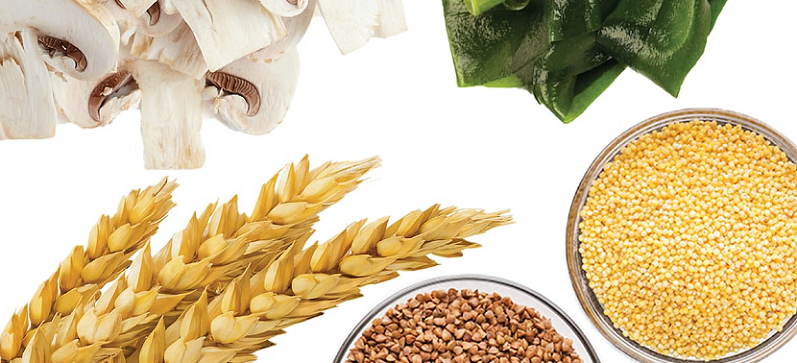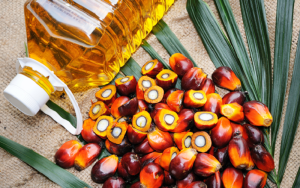
In a world where the focus on holistic health and natural remedies is increasingly gaining momentum, the exploration of potent substances found in nature is becoming more critical. One such substance, beta-glucans, have come under the spotlight for their reported health benefits, particularly their potential to support our immune system and contribute to heart health.
Contents
Introduction to Beta-Glucans
As we strive to optimize our health and wellness, it’s essential to understand the nutrients we consume and how they contribute to our overall wellbeing. One such nutrient, often unnoticed yet powerfully beneficial, is beta-glucan.
Brief Explanation of What Beta-Glucans Are
Beta-glucans are naturally occurring polysaccharides – long chains of sugars linked together – found in the cell walls of bacteria, fungi, yeasts, and cereals like oats and barley. They are recognized for their unique ability to support human health, primarily due to their complex structure and functional versatility. Although they come in various forms, all beta-glucans share a common backbone structure of glucose molecules linked together.
History and Origin of Beta-Glucans
The history of beta-glucans as a health-promoting compound dates back to the 20th century, with initial studies focusing primarily on their role in fungal and bacterial defense mechanisms. Interest in their potential health benefits grew when scientists observed their positive impact on the immune systems of animals. This led to further investigation of how beta-glucans could similarly influence human health, sparking decades of research that continue to the present day.
Common Sources of Beta-Glucans
Beta-glucans are widely distributed in nature. They can be found in a range of dietary sources including certain types of mushrooms (like reishi, shiitake, and maitake), yeasts (like baker’s yeast), and grains (such as oats and barley). Supplements are also a common way to consume beta-glucans, often derived from these dietary sources.

Understanding the Structure and Function of Beta-Glucans
To fully grasp the benefits that beta-glucans offer, it’s crucial to comprehend their chemical structure and the roles they play in our bodies.
Explanation of the Chemical Structure of Beta-Glucans
Beta-glucans are polysaccharides, essentially composed of D-glucose monomers linked together through β-glycosidic bonds. While this may sound complex, think of them as long chains of sugar molecules interconnected in a specific way. The structure of beta-glucans varies depending on their source. For example, beta-glucans derived from yeast and mushrooms are typically branched structures, while those from cereals like oats and barley are mostly linear.
This structural diversity plays a significant role in their biological activity and health benefits. The structure influences how the body recognizes and interacts with beta-glucans, and how effectively these compounds can exert their health-promoting effects [1].
The Role Beta-Glucans Play in Our Bodies
Beta-glucans play several roles once ingested. Interestingly, they are not broken down by digestive enzymes in the stomach. Instead, they reach the intestines intact, where they have multiple effects. Firstly, they act as a prebiotic, providing nourishment for beneficial gut bacteria. This not only promotes a healthy gut microbiota but also supports overall digestive health.
Additionally, beta-glucans interact with the immune system cells in the gut, such as macrophages and dendritic cells, which are responsible for the body’s primary defenses. These interactions are believed to stimulate and enhance the immune response, contributing to improved immune function.
How Beta-Glucans Interact with Our Immune System
Beta-glucans, particularly those derived from yeast and mushrooms, are known to be biological response modifiers. They interact with our immune system in a unique way. Once ingested, these compounds are recognized by specific receptors on immune cells, including macrophages, neutrophils, and natural killer cells.
This recognition leads to a cascade of events that enhances immune system activity. For instance, it can stimulate the production of cytokines, proteins that aid cell-to-cell communication in immune responses and stimulate the movement of cells towards sites of inflammation, infection, and trauma. This overall activity explains why beta-glucans are seen as potential immune-supporting compounds [2].

Beta-Glucans for Immune Support
A strong immune system is the foundation of good health, enabling our bodies to defend against harmful pathogens and diseases. Interestingly, beta-glucans have demonstrated potential in enhancing our body’s immune responses.
Explanation of How Beta-Glucans Enhance the Immune System
The immune-enhancing properties of beta-glucans can largely be attributed to their ability to activate and modulate various immune cells. As previously mentioned, they are recognized by specific receptors present on immune cells. Once bound to these receptors, beta-glucans can stimulate a series of immune responses, including the activation of macrophages, neutrophils, and natural killer cells, which play pivotal roles in immune defense.
In essence, beta-glucans can act as “immunomodulators,” helping to balance and enhance the body’s immune response. This can potentially increase the body’s resistance to infections and diseases and support faster recovery when illness does occur [3].
Summary of Research Studies Supporting Beta-Glucans’ Role in Immune Health
A growing body of scientific research supports the immunomodulatory effects of beta-glucans. Several studies have demonstrated that beta-glucans can stimulate immune cells, enhancing the body’s defense mechanisms.
For example, a review published in the Journal of Nutrition and Metabolism in 2020 highlighted the beneficial effects of beta-glucans on the immune system, including their ability to enhance macrophage activity, stimulate antibody production, and promote the functions of natural killer cells [4].
In clinical trials, supplementation with beta-glucans has been shown to reduce the severity and duration of upper respiratory tract infections, suggesting a potential role in supporting immune health, particularly in times of stress or illness.
Personal Testimonials and Case Studies on Immune Support
Alongside scientific research, personal testimonials also offer insights into the benefits of beta-glucans for immune health. Many individuals have reported experiencing fewer illnesses, faster recovery times, and overall improved health after incorporating beta-glucans into their diet or supplement regimen.
Consider the case of Sarah, a 45-year-old teacher who was frequently falling ill due to exposure to germs in her workplace. After taking a beta-glucan supplement for several months, she noticed a significant decrease in the number of colds she contracted, and when she did get sick, her recovery time was noticeably shorter.
The growing understanding of how beta-glucans work within the immune system, coupled with supportive scientific research and encouraging personal experiences, underscores the potential of these compounds in bolstering immune health.

Beta-Glucans for Heart Health
While the immune-supporting potential of beta-glucans is impressive, it’s not their only health benefit. These compounds also show promise in contributing to heart health.
Understanding the Connection Between Beta-Glucans and Heart Health
The link between beta-glucans and heart health lies in their ability to influence blood cholesterol levels. Specifically, research suggests that beta-glucans can lower levels of low-density lipoprotein (LDL), often referred to as “bad” cholesterol, which can contribute to the buildup of plaques in the arteries and increase the risk of heart disease.
Beta-glucans do this by forming a gel-like substance in the intestines, which binds to cholesterol in the food we eat, reducing its absorption. Over time, this action can lead to lower overall cholesterol levels in the body, thereby supporting heart health [5].
Overview of Research Studies Supporting Beta-Glucans’ Role in Heart Health
There is strong scientific evidence supporting the beneficial effects of beta-glucans on heart health. Numerous studies have demonstrated their cholesterol-lowering potential.
One such study published in the European Journal of Clinical Nutrition in 2019 showed that consumption of oat beta-glucans significantly reduced LDL cholesterol levels without affecting the levels of high-density lipoprotein (HDL), the “good” cholesterol.
These findings are also supported by health authorities. The FDA, for instance, allows health claims on food labels about the association between the consumption of oat-based foods containing beta-glucans and a reduced risk of heart disease [6].
Personal Testimonials and Case Studies on Heart Health Support
Anecdotal evidence aligns with the scientific findings about the heart health benefits of beta-glucans. Many people have reported improved cholesterol levels after introducing beta-glucan-rich foods or supplements into their diets.
Take the case of John, a 60-year-old man with a family history of heart disease. Despite leading an active lifestyle, his cholesterol levels were higher than desired. After incorporating a daily oat-based, beta-glucan supplement into his routine, his cholesterol levels significantly improved, much to his and his doctor’s satisfaction.
Possible Side Effects and Precautions with Beta-Glucans
While beta-glucans are natural compounds with potential health benefits, it’s important to be aware of potential side effects and precautions. Even natural substances can cause adverse reactions in certain individuals or when used inappropriately.
Exploring Potential Side Effects
Generally, beta-glucans are considered safe for most people when taken in appropriate amounts. However, like with any dietary supplement, some individuals may experience side effects. Common side effects associated with beta-glucans include mild gastrointestinal upset, such as bloating, gas, and changes in bowel habits.
These symptoms are typically mild and subside as the body adjusts to the supplement. However, if you experience persistent or severe side effects, it’s advisable to stop using the supplement and consult your healthcare provider [7].
Discussing Possible Interactions and Precautions
While beta-glucans are generally safe, there are some specific situations where caution is advised. For instance, beta-glucans may interact with certain medications, such as immunosuppressants and anticoagulants, potentially affecting their effectiveness. Therefore, if you’re on any long-term medications, it’s essential to discuss with your healthcare provider before starting a beta-glucan supplement.
Also, individuals with autoimmune conditions should exercise caution as beta-glucans can stimulate immune system activity, which might exacerbate symptoms in these individuals.
Clarifying Who Should Avoid Beta-Glucans
Certain individuals should avoid beta-glucans altogether. For instance, individuals with a known allergy to yeast or mushrooms should avoid beta-glucans derived from these sources to prevent potential allergic reactions.
Additionally, pregnant and breastfeeding women should consult with their healthcare provider before using beta-glucan supplements, as there isn’t enough research to confirm their safety in these populations.
References
[1] Immunity Supporting Foods: A Shopper’s Guide to Immunity Nutrition
[2] The effects of β-glucan on human immune and cancer cells
[3] Effects of fungal beta-glucans on health – a systematic review of randomized controlled trials
[4] Nutraceutical functions of beta-glucans in human nutrition
[5] Immunomodulating Effects of Fungal Beta-Glucans: From Traditional Use to Medicine
[6] β-glucans: a potential source for maintaining gut microbiota and the immune system
[7] Algae-Sourced Beta-Glucan Targets Immune Health






